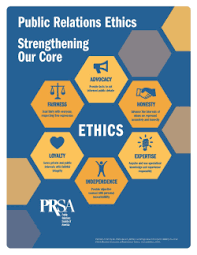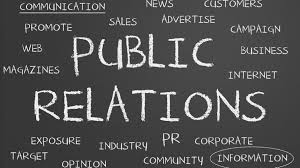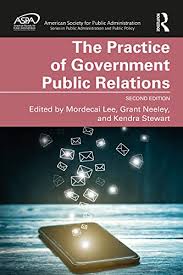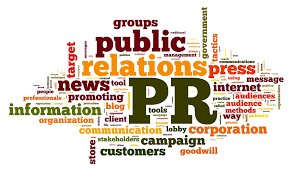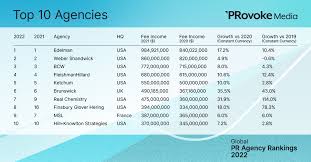Edelman PR Agency: Setting the Standard for Strategic Communication
Edelman PR Agency: A Leader in Strategic Communication
Edelman is a renowned global PR agency that has been setting the standard for strategic communication for over six decades. With a presence in major cities around the world, Edelman is known for its innovative approach to public relations and its commitment to delivering results for clients across various industries.
Founded by Daniel J. Edelman in 1952, Edelman has grown to become the largest independently owned PR firm globally. The agency’s success can be attributed to its focus on building trust, driving engagement, and creating meaningful connections between brands and their audiences.
One of Edelman’s key strengths is its ability to adapt to the ever-changing media landscape. The agency leverages data-driven insights and cutting-edge technology to develop tailored communication strategies that resonate with target audiences and drive business outcomes.
Edelman offers a wide range of services, including media relations, crisis management, digital marketing, influencer engagement, and more. The agency’s team of experienced professionals combines creativity with strategic thinking to deliver impactful campaigns that capture attention and inspire action.
With a client roster that includes Fortune 500 companies, non-profit organizations, government agencies, and high-profile individuals, Edelman has established itself as a trusted partner for those seeking to enhance their reputation and achieve their communication goals.
Edelman’s commitment to excellence, innovation, and ethical practice has earned the agency numerous awards and accolades over the years. From Cannes Lions to PRWeek Awards, Edelman continues to be recognised for its outstanding work in the field of public relations.
As the communication landscape continues to evolve, Edelman remains at the forefront of industry trends and developments. The agency’s dedication to driving change and making a positive impact through strategic communication sets it apart as a leader in the PR industry.
Whether you are looking to build brand awareness, manage a crisis situation, or engage with your target audience online, Edelman has the expertise and capabilities to help you achieve your communication objectives effectively.
Contact Edelman today to discover how their strategic communication solutions can elevate your brand and drive success in today’s competitive market.
9 Essential Tips for Maximising Your Partnership with Edelman PR Agency in the UK
- Edelman is a global PR agency with a strong presence in the UK.
- They offer a wide range of PR services including media relations, crisis management, and digital marketing.
- Edelman has a reputation for working with high-profile clients and delivering impactful campaigns.
- Their team in the UK consists of experienced PR professionals who are well-connected in the industry.
- It’s important to clearly communicate your goals and expectations when working with Edelman.
- Be prepared to collaborate closely with their team to ensure successful outcomes for your PR campaigns.
- Stay updated on the latest trends and developments in the PR industry to leverage Edelman’s expertise effectively.
- Regularly review and evaluate the performance of your PR initiatives with Edelman to make necessary adjustments for better results.
- Maintain open communication channels with Edelman throughout your partnership to address any issues promptly.
Edelman is a global PR agency with a strong presence in the UK.
Edelman is a prominent global PR agency that boasts a robust presence in the UK. With its strategic communication expertise and innovative approach to public relations, Edelman has established itself as a key player in the UK market. Leveraging its vast experience and talented team of professionals, Edelman continues to deliver impactful campaigns that resonate with audiences and drive tangible results for clients across various industries in the UK.
They offer a wide range of PR services including media relations, crisis management, and digital marketing.
Edelman PR Agency stands out for its comprehensive range of services, encompassing vital aspects of public relations such as media relations, crisis management, and digital marketing. With a strong focus on strategic communication, Edelman’s expertise in these key areas enables clients to effectively navigate the complexities of the modern communication landscape. Whether it’s securing valuable media coverage, handling challenging situations with finesse, or leveraging digital platforms for maximum impact, Edelman’s diverse PR services cater to the diverse needs of businesses looking to enhance their brand presence and reputation.
Edelman has a reputation for working with high-profile clients and delivering impactful campaigns.
Edelman PR agency is renowned for its track record of collaborating with high-profile clients and executing impactful campaigns that resonate with audiences. With a strong reputation for excellence in strategic communication, Edelman consistently delivers innovative and results-driven strategies that elevate brands and drive engagement. By leveraging their expertise and creativity, Edelman has established itself as a trusted partner for clients seeking to make a significant impact in the ever-evolving world of public relations.
Their team in the UK consists of experienced PR professionals who are well-connected in the industry.
Edelman’s team in the UK comprises seasoned PR professionals with extensive industry experience and a robust network of connections. These professionals bring a wealth of knowledge and expertise to the table, allowing Edelman to offer strategic communication solutions that are tailored to the specific needs of clients in the UK market. With their strong industry connections, the team is well-equipped to navigate the dynamic landscape of public relations and deliver impactful campaigns that resonate with target audiences and drive business success.
It’s important to clearly communicate your goals and expectations when working with Edelman.
When partnering with Edelman PR Agency, it is crucial to articulate your objectives and expectations clearly. By communicating your goals effectively, you enable Edelman to tailor their strategic communication efforts to align with your specific needs. Clear communication fosters a collaborative relationship, ensuring that both parties are on the same page and working towards achieving shared outcomes. Transparent dialogue with Edelman enables them to deliver targeted solutions that resonate with your target audience and drive tangible results for your brand.
Be prepared to collaborate closely with their team to ensure successful outcomes for your PR campaigns.
When working with Edelman PR Agency, it is essential to be ready to engage in close collaboration with their team to maximise the success of your PR campaigns. By actively participating in the strategic planning process and sharing insights about your brand and goals, you can ensure that Edelman’s expertise is effectively aligned with your vision. This collaborative approach fosters a strong partnership that enables both parties to work towards achieving impactful outcomes that resonate with your target audience and drive tangible results for your business.
Stay updated on the latest trends and developments in the PR industry to leverage Edelman’s expertise effectively.
To leverage Edelman’s expertise effectively, it is crucial to stay updated on the latest trends and developments in the PR industry. By keeping abreast of emerging strategies and best practices, you can maximise the value of working with Edelman and ensure that your communication efforts align with current industry standards. Edelman’s deep understanding of evolving trends combined with your knowledge of the PR landscape will enable you to create innovative and impactful communication campaigns that resonate with your target audience and drive success for your brand.
Regularly review and evaluate the performance of your PR initiatives with Edelman to make necessary adjustments for better results.
Regularly reviewing and evaluating the performance of your PR initiatives with Edelman is crucial for achieving optimal results. By analysing key metrics and outcomes, you can identify what is working well and where adjustments may be needed to enhance the effectiveness of your communication strategies. Edelman’s expertise in data-driven insights can help you make informed decisions and refine your PR efforts to align more closely with your goals. Continuous evaluation and adaptation based on performance feedback will ensure that your PR initiatives remain relevant, impactful, and successful in meeting your communication objectives.
Maintain open communication channels with Edelman throughout your partnership to address any issues promptly.
Maintaining open communication channels with Edelman throughout your partnership is crucial to ensuring a successful collaboration. By fostering transparent and proactive communication, you can address any issues promptly, allowing for timely resolutions and adjustments to be made. This approach not only helps in building a strong working relationship but also enables both parties to stay aligned on goals, expectations, and deliverables. Keeping the lines of communication open with Edelman fosters trust, enhances efficiency, and ultimately leads to more effective PR campaigns that drive results.




